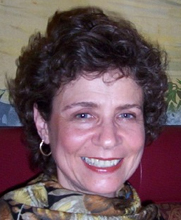


Questions & Answers - August 2004

|
Mary C. Fridley, RN,C is a registered nurse certified in gerontology with more than twenty years in the geriatric health field. She is the owner of Gero-Resources specializing in caregiver, eldercare, and successful aging education and advocacy. Mary is also an author of two caregiver advice columns and contributes articles to various websites. She is available for speaking engagements and would be happy to answer your questions or concerns while maintaining your anonymity.
About Mary
Mary's Column Archives: Caregivers'
Questions & Answers
|
Dear Mary,
I recently read an article in a newspaper that said eight, eight ounce glasses of water a day is no longer necessary and that thirst should be your guide. With summer here, the timing of this article could not have been worse. Older people not only lose their sense of taste and smell but also their sense of thirst. If I gave my father a drink, he would down it, but he would never ask for or get one for himself. If I forgot to give him fluids, he would dehydrate, so I learned to provide him with enough liquid as well as enough food.
Maybe you could address this issue in your column to help caregivers get their loved ones through the summer without dehydrating.
Dear Reader,
I too, have read this latest theory. The information comes from an on-line review for the American Journal of Physiology by Dr. Heinz Valtin, MD, professor emeritus of physiology at Dartmouth Medical School. However, Dr. Valtin makes it clear that his conclusion is limited to healthy adults who lead sedentary life-styles and are living in mild climates. This excludes older adults who have greater fluid needs because of normal aging changes, chronic disease, or medication side effects.
As you have experienced, dehydration can occur rapidly. Regardless of dementia, older adults should be offered fluids frequently throughout the day. The exact amount depends on health conditions such as heart or kidney disease. Caregivers should check with their loved one's primary care physician to determine how much fluid is safe to be consumed each day. Too much is just as dangerous as too little.
Dear Mary,
My father is 79-years-old and living alone. His vision is poor and a recent heart attack has left him weak. He can no longer get out of the house by himself and his neighbors are helping with chores and meals. I am not sure how long they can keep it up, though. He is a proud, stubborn man who does not want anyone to help him with bathing, even me. About twice a week he gets in and out of the tub alone. My fear is that one of these days he will fall and severely injure himself. Is there anything I can say or do to make him accept help?
Dear Reader,
Redirect attention from his disabilities to your need for him to stay well by telling him that you worry and how sad it would make you if he got hurt. I also recommend that the Department of Aging come in and do an assessment for safety and needs. They would be able to recommend services and help him obtain safety equipment and personal care assistance. You father has to agree to the evaluation so explain that it is a free service available to all seniors and one of the perks of getting older. He may be more receptive to accepting help if offered by a neutral party.
Dear Mary,
My mother eats like a bird. She is so frail and thin that I am afraid a mild wind would blow her over. She sees her doctor who tells her she must eat, but she is not interested. My husband and I built a nice efficiency apartment in our home so she could have privacy yet have me close enough to help her. I provide her with all her meals, so it is not like she has to shop and cook. I try everything I can to make the foods she likes, but she just picks at them and says she is not hungry. Do you have any suggestions?
Dear Reader,
The smell of food cooking is an appetite stimulant; so invite her to participate in meal preparation with you. Also, mealtime is a social event so sharing meals with her would encourage her to eat. If her appetite does not improve, talk to her doctor about offering a liquid food supplement. It is a nutritious alternative frequently given for this problem. There are a variety of brands on the market that can be made even more appealing by adding ice cream, if her diet allows, to make a shake.
It is illegal to reprint articles, in any format (including emails, websites, etc.), without explicit written permission from the author of this article and / or Empowering Caregivers™
|
|

